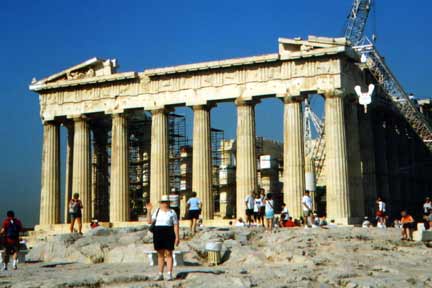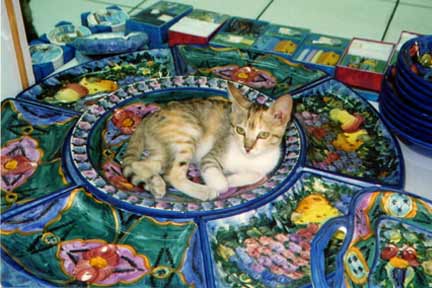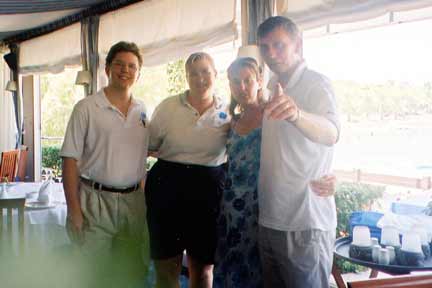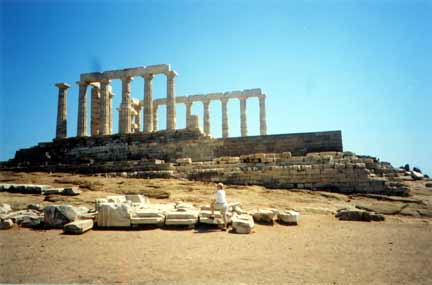
The Parthenon with Jen, multi-tasking: waving and
fanning herself.
Our first landmark was to climb the inevitable Acropolis. It was the essential stop, the high-water mark of the culture that ultimately begat our own. We made the slow ascent among, I would approximate, a million billion other tourists, a unit of Greek soldiers in fatigues and a bunch of Greek dogs. The latter were unceasingly friendly. We passed vistas of modern Athens and a modern amphitheatre as we headed back in time a few thousand years.
Over the summer, we had been building a n understanding of the scale of the ancient world. We had begun to sense the dimensions at Pompeii, where we saw a city stretching for two miles. Ephesus helped us understand the loftiness of these structures. The Parthenon, standing high on the Acropolis was more than a suggestion of these dimensions: it simply stood before us. One must climb the hill to view it, of course, so you first experience the buildings from a worm's-eye view, making them look frankly awesome. Though the British have stripped many of the stone reliefs for their Museum and the Turks (accidentally) blew it up in the thirteenth century, it still is extraordinarily impressive.
The acropolis holds not only the Parthenon, but also the Erechtheion, which features the famous 'Porch of the Maidens,' Jen's favorite, with beautiful statues of the Caryatids. It is also supported with gracefully feminine Ionic columns, where the neighboring Parthenon strictly sports heavy Doric columns. Seeing these in proximity was yet another moment of "aha!" like those I had experienced on the trip since the Globe theatre. Reading about these differences is just not the same as experiencing them viscerally: the Doric columns look macho. More of the original statuary from these building is held in an archeological museum also atop the Acropolis, where we were still overrun by tour groups, though sheltered from the rising heat of the day.


